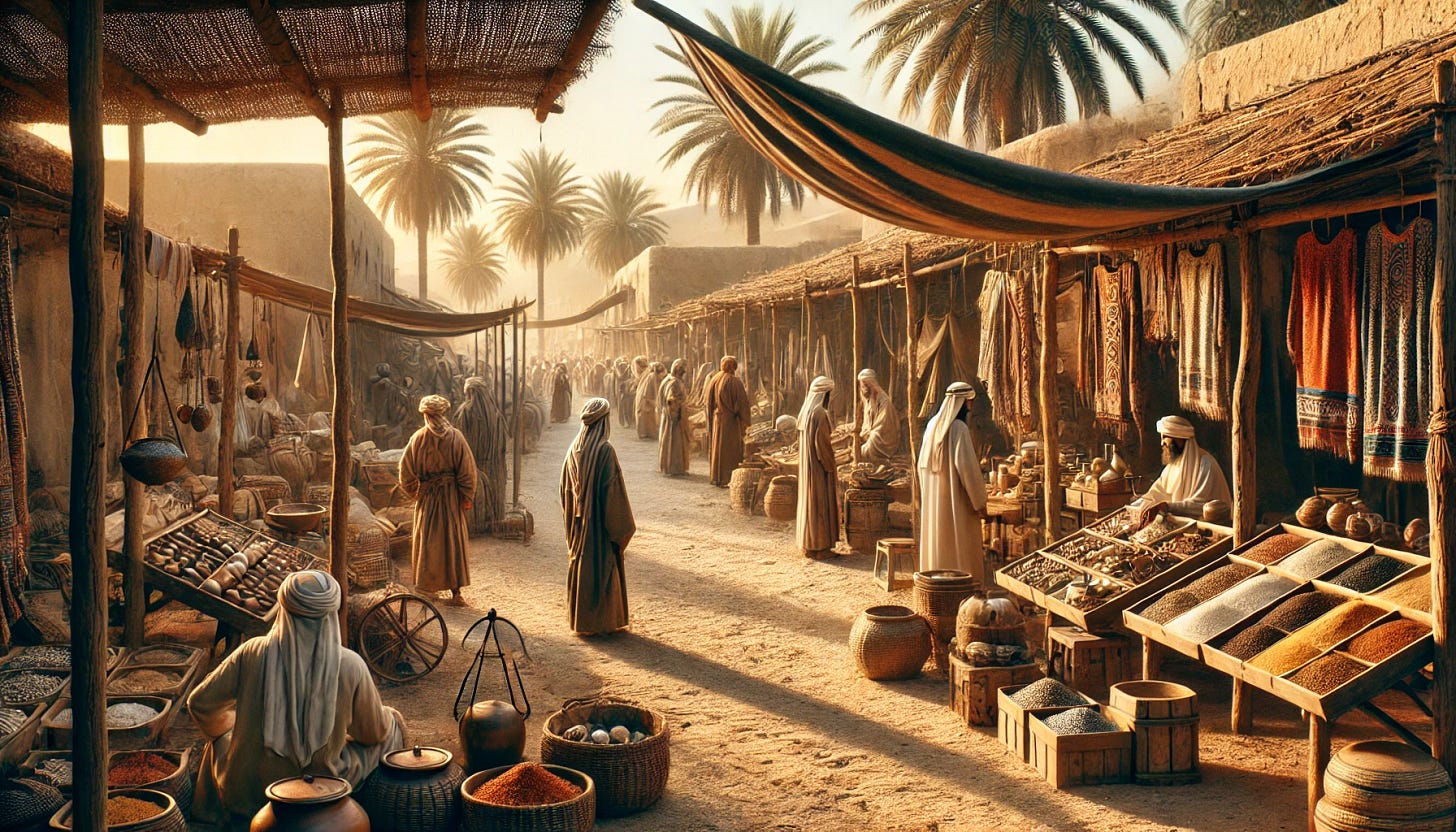Tijarah: Unlocking Timeless Islamic Principles for Ethical Entrepreneurship
Balancing Profit and Purpose in Modern Times
At Tijarah Academy, we aim to help Muslims engage in business that not only brings material success but aligns with Islamic principles.
The very name Tijarah - derived from the Arabic root “tajr” - is often translated as ‘trade’, but it represents much more than this.
Understanding Tijarah: More Than Just Trade
Tijarah reflects the dynamic exchange and interaction that lies at the heart of both commerce and life itself.
In Islam, tijarah carries a profound significance, symbolising the pursuit of both worldly and spiritual success through ethical business practices.
Tijarah has two significant meanings:
1) Devotion to Allah: The first meaning is related to a person's relationship with Allah.
A Muslim who follows the commands of Allah, performing acts of worship (such as prayers, fasting, and zakat), is engaged in Tijarah with Allah. This is considered the most successful form of trade, as the believer is "trading" their good deeds for the reward of paradise.
The Qur’an repeatedly describes this as the best form of Tijarah, encouraging Muslims to view their worship as a trade with their Creator.
2) Business Between Humans: The second meaning of Tijarah refers to business activities between people.
In this context, Tijarah encompasses all forms of buying, selling, leasing, and other economic activities. This aspect of Tijarah must adhere to the values of justice, fairness, and mutual consent, as detailed in the Qur’an and the Sunnah.
Tijarah in the Quran and Sunnah
In the Quran, tijarah is often mentioned alongside guidance for living a balanced life.
One verse that beautifully captures this balance is:
“And when the prayer is concluded, disperse in the land and seek of Allah’s bounty” (Quran 62:10).
This verse emphasises that while devotion to Allah is paramount, Muslims are also encouraged to actively engage in trade and seek lawful sustenance.
Islam does not separate faith from our daily endeavours, especially in business. Rather, it integrates the two, turning business into a form of worship when done ethically.
Entrepreneurship is not just about profit - it's about purpose. The linguistic roots of tijarah remind us that business is not a static transaction; it is a dynamic, ethical journey, one that reflects our deeper spiritual responsibility.
Just as trade involves the movement of goods and services, so too does it represent the movement towards personal and societal betterment, all under the guidance of Islamic values.
Prophet Muhammad ﷺ: The Ultimate Example of Tijarah
The Prophet Muhammad ﷺ was not only a spiritual leader but also a successful trader, renowned for his honesty, trustworthiness, and fairness in business. His title Al-Amin (The Trustworthy) was earned through his impeccable trade dealings.
The Prophet ﷺ once said, “The trustworthy merchant will be with the prophets, the truthful, and the martyrs” (Tirmidhi). This powerful statement links the act of trading with the highest forms of spiritual reward, showing that business done right can elevate a person in both this life and the Hereafter.
Tijarah - when practised with integrity- brings not only profits but also divine purpose. Our goal is to emulate the Prophet’s ﷺ ethics in business, ensuring that our ventures contribute to both our financial stability and spiritual growth.
Tijarah: A Path to Balance and Fulfillment
The word tijarah also offers a broader metaphor for life’s exchanges - our dealings with others, our relationship with the material world, and, ultimately, our trade with Allah.
The Quran frequently reminds us that our deeds in this world are a form of trade with Allah, where we exchange our efforts for eternal rewards. We should aim to instil a sense of responsibility, ethics, and faith into every entrepreneurial venture.
By embracing the true meaning of tijarah, Muslim entrepreneurs can achieve both material success and spiritual fulfilment. Tijarah is more than a profession - it’s a path to balance, where our business reflects our values, our desire to serve our community, and ultimately please Allah.





